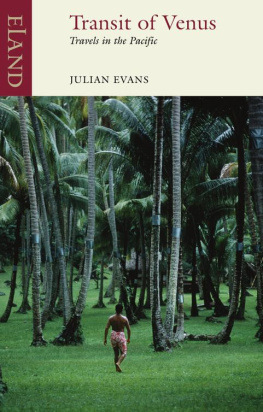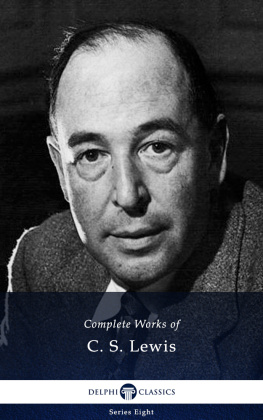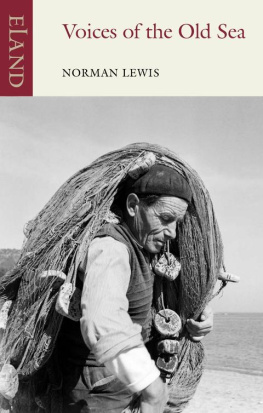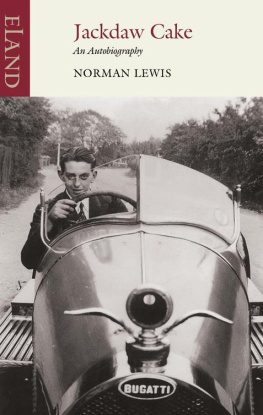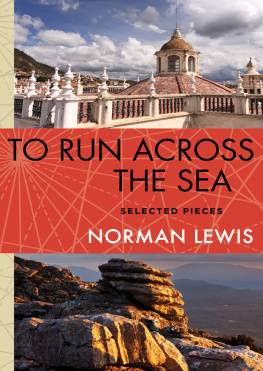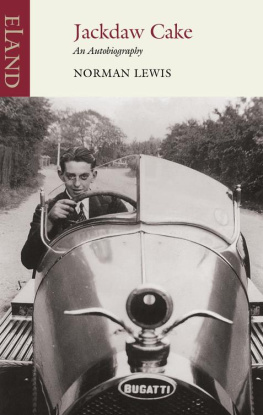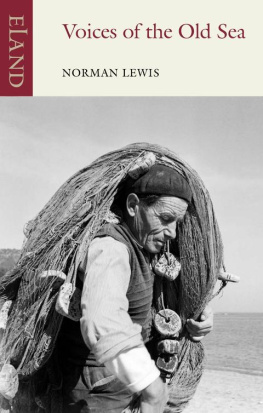Semi-Invisible Man
Also by Julian Evans
Transit of Venus: Travels in the Pacific
This eBook is copyright material and must not be copied, reproduced, transferred, distributed, leased, licensed or publicly performed or used in any way except as specifically permitted in writing by the publishers, as allowed under the terms and conditions under which it was purchased or as strictly permitted by applicable copyright law. Any unauthorised distribution or use of this text may be a direct infringement of the author's and publisher's rights and those responsible may be liable in law accordingly.
ISBN 9781407015514
Version 1.0
www.randomhouse.co.uk
The author gratefully acknowledges funding support during the writing
of this book from Arts Council England, the Authors' Foundation
and the OppenheimJohn Downes Memorial Trust

Published by Jonathan Cape 2008
2 4 6 8 10 9 7 5 3 1
Copyright Julian Evans 2008
Julian Evans has asserted his right under the Copyright, Designs
and Patents Act 1988 to be identified as the author of this work
This electronic book is sold subject to the condition that it shall not by way of trade or otherwise, be lent, resold, hired out, or otherwise circulated without the publisher's prior consent in any form other than that in which it is published and without a similar condition including this condition being imposed on the subsequent purchaser
First published in Great Britain in 2008 by
Jonathan Cape
Random House, 20 Vauxhall Bridge Road,
London SW1V 2SA
www.randomhouse.co.uk
Addresses for companies within the Random House Group
can be found at www.randomhouse.co.uk
The Random House Group Limited Reg. No. 954009
A CIP catalogue record for this book is available from the British Library
ISBN: 9781407015514
Version 1.0
For Michel Don,the godfather
PRELUDE:
THE RELUCTANT BIOGRAPHER
I must be frank. I didn't want to write this book.
In July 1983, twenty years before he died, Norman Lewis had lunchat Covent Garden, London, with his new British publisher. The restaurantwhere the lunch took place, the Grange, is long gone, but in the1980s it had an English name, a good, mainly French menu and adiscreet oriental atmosphere. It could have passed for a luxury Chineserestaurant, in fact, the kind of place where diners eat imperceptiblyand seem not to talk at all, and that confusion of styles could wellhave been responsible for its failure to continue to attract enoughcustomers. Norman's hosts were waiting for him towards the back ofthe deep, darkly furnished room. He arrived a few minutes after one,a tall, stooping silhouette against the light, wearing spectacles and anunpronounced moustache, his straight hair combed obediently back;a man in his seventies but ageless by virtue of the impression of a kindof austerity of appearance. The chair-scraping and introductions over,everyone sat down. A silence followed, and was broken by a burst ofwarm words from one of Norman's hosts about his writing and hismost recent books, including his new novel. Norman responded shortly,his gaze on the tablecloth. Silence returned. Norman's new publisherand the publisher's editor both tried to engage their guest. How washis new book going? Was he happy with the editorial comments he'dhad about his novel? With each shot at conversation, each shortanswer, the silence recoiled more strongly. At one point, as Normanspeechlessly gazed at the tablecloth, the publisher raised his eyebrowsat the editor across the table.
Drinks arrived, lunch was ordered: flurries of activity that releasedthe tension temporarily. Norman's speechlessness, however, was lasting.It went through the editor's mind that his silence might be due tothoughtfulness or to a physical distraction (was he perhaps feelingunwell?). It was not until much later, after the lunch was long overand Norman had gone home to Finchingfield, the Essex village wherehe had lived for more than twenty years, that the editor realised hismuteness had been more like wariness: like the cautious immobility ofan animal as it weighs up potential predators, or the vigilance of aman calculating another sort of threat, a boredom that would prey onhim equally horribly.
For a good twenty minutes, it was as if Norman was there but waspretending not to be there.
Quite suddenly, without any kind of signal, it was over. He seemedto decide that these people were all right and that the situation couldbe trusted, and stories his preferred form of conversation startedto pour out, about the lunacy of his commanding officer in north Africaduring the war, about an evening he had spent in a bar in uplandGuatemala in the 1950s operating the jukebox for three drunkenbandits addicted to a song called "Mortal Sin" (a situation from whichhe'd been saved by an earthquake), about his summers in a Catalonianfishing village in the early 1950s, about his role as an Intelligence NCOin the repatriation of several thousand Cossacks by the British in 1944.
"And by the way," he would say in his glasspaper north Londonvoice, and the narrative would bifurcate into another continent.
I know all this, incidentally, because I was the editor. The impressionsfollow on from the facts. And then time transforms and refinesthings. Long after this first meeting with Norman, his silence acquiredmore importance than it had had at the time. In retrospect, I treasuredit. It was as though, by not speaking, he was compelling the world inhis immediate vicinity his audience of myself and Christopher Sinclair-Stevenson,the publisher of Hamish Hamilton to his pace, his mood,his atmosphere. It was a sort of conquest. And having imposed acceptanceof his idea of who he was, nothing could have been less warythan the letter he sent the following day.
15.7.83
Dear Christopher,
It was delightful to meet you and Julian Evans yesterday, and thank you forthe lucullan lunch. Such rare and invigorating occasions are all the more memorablewhen one lives, as I do, in the intellectual tundra of Essex, condemnedon festive outings to an eating house the only one within five miles appositelynamed The Nosebag.
I will now cerebrate over the new title [of his novel], while awaiting Andr[Schiffrin, his US publisher]'s suggestions for reducing the Americans' toothgratingimpact, and incorporate these with other small changes. Let us hopethat these turn up before my departure on the annual family holiday, whichlooms close. I dearly need an excuse for slipping away from those threateningbeaches.
With best wishes,
Sincerely,
Norman
At the time the letter's first line, in which he perfectly recalled thename of the other person at lunch, seemed just an example of hisextreme courtesy. Yet rapidly, in the space of not more than a fewmonths, Norman and I became friends. This happened unexpectedlyand in an oddly formal way. I can talk with some precision about theoccasion, another lunch in November of that year, at El Vino's, theone-time journalists' bar in Fleet Street, because during my twenties Ikept a diary that records many of my meetings with Norman. BeforeI do, though, I want to revert to our first meeting (which is not in mydiary). I started this prelude with an account of that occasion not forthe obvious reason, but because 1. I wanted to tell it from memoryand 2. it also seems to offer some perspectives on the practice of biographythat interest me. Forgive this change of gear. If it seems abruptor disruptive or undesirable, feel free to move straight to the nextchapter where events will be less mediated.
The first observation, then. Since the account of our meeting aboveis from memory, everything you have read, apart from Norman's thank-youletter, which is in the Hamish Hamilton archive at the SpecialCollections of the Arts and Social Sciences Library, Bristol University,is made up. Made up from an often taken-down-and-examined memory,perhaps, but still fabricated. Was the Grange, for instance, really decoratedin a Chinese style? Was Norman really silent for "a good twentyminutes"? Did Christopher Sinclair-Stevenson raise his eyebrows? Werethose particular stories the ones Norman told? All of which is only topoint out at this stage the very obvious matter of memory's subjectivity,mine and everyone else's. The observer's subjectivity was a questionthat was of intense interest to Norman himself, as I want to show:Akira Kurosawa's


